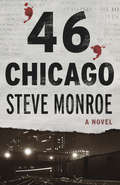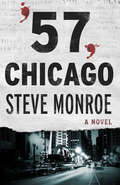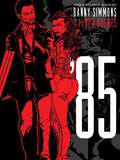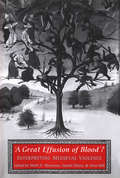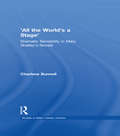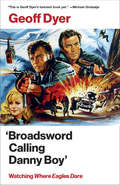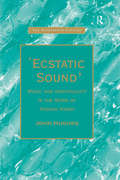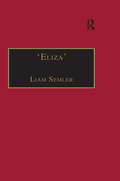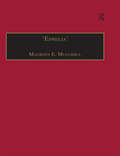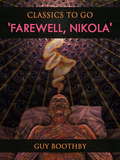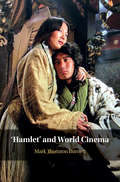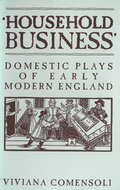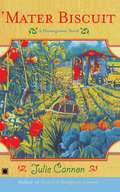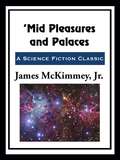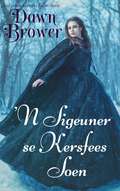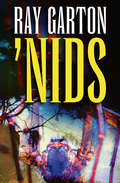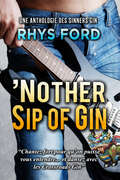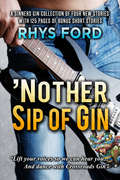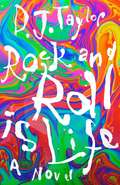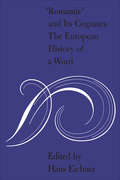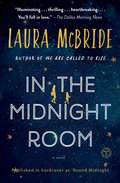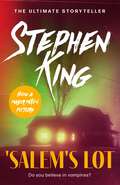- Table View
- List View
'46, Chicago
by Steve MonroeDateline Chicago, 1946: Policy, the illegal lottery, makes millions of dollars for racketeers in Chicago's black community. But the numbers don't add up when kingpin Ed Jones is kidnapped. Who grabbed him? The mob? Another policy wheel operator? And why? Gus Carson, World War II veteran, a survivor of the sinking of his ship in the Pacific. A Chicago cop, he's suspended for a late night shooting at a brothel. Enter wealthy politico Arvis Hypoole. He hires Gus to find Jones. The caveat: He's got one week to do it. The challenge: Everyone's looking for Jones and most don't want to find him alive. Author Steve Monroe offers another slice of underworld life told through fact-based fiction. And his protagonist, Carson, is the conduit to the intrigue. Haunted and violent, he staves off pressure with a wisecrack or a hard cross to the jaw. He navigates through a world of gambling, nightlife, shady politics and murder, all the while seeking much more than the kidnapping victim. He's seeking redemption. And there is only one time and one city in which he can find it: '46, Chicago.
'57, Chicago
by Steve MonroeA slice of underworld life, '57, Chicago is a fact-based fictional thriller. The banker's dead--a mob killing with repercussions. Money's tied up. Three men are on a collision course: Al. He's a layoff bookie, thinks he can live as a middleman between his customers and the Outfit. His credo: Never take a position. The Lip. Desperate and dangerous, he's a fight promoter trying to create the fight of a lifetime. The Hammer. A great black hope. He's a boxer, thrust into an uncomfortable limelight. A potential heavyweight champ, his biggest fight is with himself. The cops swarm. The gangsters rage. One night. One fight. No way they can all win. The heat's intense, the stakes are high and the outcome's impossible to predict. The mystery: Who makes it out alive? It's a bloody, savage night in '57, Chicago.
'85
by Danny Simmons Floyd HughesInspired by the widely praised novel Three Days as the Crow Flies, Danny Simmons and Floyd Hughes present a richly illustrated graphic novel set in the gritty underworld of New York City circa 1985 -- a time and place when street culture and the fine arts scene came together in strange and often predatory ways. Crow, a junky and the son of a deceased police officer, steals a few paintings from his friend Danny, which he hopes to sell and make a few dollars off of to pay his landlord and cop some powder. Before he knows it, he's drawn into the surreal dreamland of "do-as-you-please," a hazy, hedonistic world of sex, drugs, and cold-blooded commerce. Filled with evocative black-and-white imagery and crackling with authentic, street-smart dialogue, Simmons and Hughes capture and bring to life this haunting urban tale. <P><P> <i>Advisory: Bookshare has learned that this book offers only partial accessibility. We have kept it in the collection because it is useful for some of our members. Benetech is actively working on projects to improve accessibility issues such as these.</i>
'A Great Effusion of Blood'?
by Oren Falk Mark D. Meyerson Daniel Thiery'A great effusion of blood' was a phrase used frequently throughout medieval Europe as shorthand to describe the effects of immoderate interpersonal violence. Yet the ambiguity of this phrase poses numerous problems for modern readers and scholars in interpreting violence in medieval society and culture and its effect on medieval people. Understanding medieval violence is made even more complex by the multiplicity of views that need to be reconciled: those of modern scholars regarding the psychology and comportment of medieval people, those of the medieval persons themselves as perpetrators or victims of violence, those of medieval writers describing the acts, and those of medieval readers, the audience for these accounts. Using historical records, artistic representation, and theoretical articulation, the contributors to this volume attempt to bring together these views and fashion a comprehensive understanding of medieval conceptions of violence.Exploring the issue from both historical and literary perspectives, the contributors examine violence in a broad variety of genres, places, and times, such as the Late Antique lives of the martyrs, Islamic historiography, Anglo-Saxon poetry and Norse sagas, canon law and chronicles, English and Scottish ballads, the criminal records of fifteenth-century Spain, and more. Taken together, the essays offer fresh ways of analysing medieval violence and its representations, and bring us closer to an understanding of how it was experienced by the people who lived it.
'All the World's a Stage': Dramatic Sensibility in Mary Shelley's Novels (Studies in Major Literary Authors)
by Charlene BunnellThis book examines the often tragic and nearly always disabling metaphor of thetheatrum mundi, world-as-stage, as it plays itself out in the characters of Mary Shelley's novels.
'Broadsword Calling Danny Boy': Watching 'Where Eagles Dare'
by Geoff DyerGeoff Dyer's earlier book on film, Zona, was about Andrei Tarkovsky's Stalker, so it was perhaps inevitable that he should next devote his unique critical and stylistic energies to Brian G. Hutton's Where Eagles Dare. A thrilling Alpine adventure starring a magnificent, bleary-eyed Richard Burton and a dynamically lethargic Clint Eastwood, Where Eagles Dare is the apex of 1960s war movies, by turns enjoyable and preposterous.'Broadsword Calling Danny Boy' is Geoff Dyer's hilarious tribute to a film he has loved since childhood: it's a scene-by-scene analysis—or should that be send-up?—taking us from it's snowy, Teutonic opening credits to its vertigo-inducing climax.
'Ecstatic Sound': Music and Individuality in the Work of Thomas Hardy (The Nineteenth Century Series)
by John HughesThis book studies the ways Hardy writes about music, and argues that this focus allows for a close and varied investigation of the affective dimensions of his poetry and fiction, and his recurrent preoccupations with time, community and love. Throughout his work Hardy associates music with moments of individual expression and relatedness. For him, music provokes a response to life that is inseparable from what gives life value, as well as being incompatible with his increasingly conscious vision of personal and social limitation. The first two chapters trace how this ironic disjunction is evident in the novels and the tales, while exploring in detail how they represent and evoke the spiritual and emotional transports of musical experience. In a corresponding way, the third and fourth chapters concentrate on how, within the poetry, music works as a vehicle of inspiration and memory, recurrently surprising the conscious self with intimations of other potentials of expression. In the fifth chapter, the focus falls on Hardy's own philosophical reading, and thus on his notebooks and letters, so as to revisit in an altered context many of the issues that have been opened up by the book's emphasis on his literary representations of musical experience-issues of individuality, of unconscious and bodily experience, of literary language. Finally, although the book does incorporate some biographical detail about Thomas Hardy's lifelong passion for playing and collecting music, it predominantly works through close reading, while also drawing at points on literary theoretical texts, where these offer ways of articulating the broad questions of literary convention and representation that arise.
'Eliza': Printed Writings 1641–1700: Series II, Part Two, Volume 3 (The Early Modern Englishwoman: A Facsimile Library of Essential Works & Printed Writings, 1641-1700: Series II, Part Two)
by Liam SemlerThis facsimile edition reproduces the work titled Eliza's Babes which was first published in 1652. The volume comprises devotional and political verse and prose meditations. The poems cover a wide range of forms from verse epistles to poetic petitions, religious love lyrics to poems on earthly marriage, exultant poetic prayers to stern spiritual admonitions. The meditations are fine examples of the Puritan believer's plain-style response to various biblical texts, theological issues and political events. The text is historically and aesthetically unique. It reveals its anonymous author to be perhaps the first woman to publish substantial creative imitations of poems printed in George Herbert's The Temple (1633) and to rely upon and respond to Robert Herrick's Hesperides (1648). Eliza's Babes is a literary work of great originality. The narrator lives out her estate of salvation as an almost literally experienced marriage of election to Christ her Saviour. In a series of poems, 'Eliza' overcomes her initial shock and disappointment that her heavenly spouse has chosen an earthly partner for her, though this partner's prerogative is noticeably confined to the subservient role of facilitating his wife's heavenly marriage. The copy reproduced in this edition is the British Library text.
'Ephelia': Printed Writings 1641–1700: Series II, Part Two, Volume 8 (The Early Modern Englishwoman: A Facsimile Library of Essential Works & Printed Writings, 1641-1700: Series II, Part Two)
by Maureen E. MulvihillThis facsimile edition reproduces the extant works of the seventeenth-century poet, 'Ephelia'. By tradition, the identity of 'Ephelia' has been a long-contested debate in English letters. In her extended Introductory Note, Maureen Mulvihill culls evidence from the 'Ephelia' texts and from contemporary sources to show that the most likely candidate is Mary Villiers, later Stuart, Duchess of Richmond and Lennox (1622-1685). The volume opens with the reproduction of A Poem To His Sacred Majesty, On the Plot... (1678) from the copy held at the Bodleian Library. This is a large broadsheet poem prompted by The Popish Plot, expressing support for King Charles II. A new addition to the corpus of 'Ephelia's work is a variant of this 1678 parent-text, displaying a woodcut printer's ornament (factotum, with inset typepiece 'H'), which may hold special significance. This volume reproduces the copy preserved at the Huntington Library, and supplies with the facsimile an enlarged image of the ornament. Female Poems on several Occasions (1679) offers a rich variety of material: political verse, excerpted material from the poet's 'lost' play, love poetry and coterie verse critical of the moral decline of the Stuart court. The copy of the book reproduced here is that preserved at the Folger Shakespeare Library. The final printed work in the volume is Advice To His Grace ([1681]) in which 'Ephelia' admonishes the Duke of Monmouth and advocates the purity of the Stuart line and the integrity of the Stuart succession. The copy reproduced here is preserved at the Beinecke Library. The volume concludes with three appendices: two Van Dyck portraits of Lady Mary Villiers; a signed manuscript elegy, preserved at Nottingham, with an enlarged image of its armorial watermark; and the title-page of the poet's Female Poems (1682).
'Farewell, Nikola' (Classics To Go)
by Guy BoothbyThis is the last of Boothby's Dr. Nikola novels, set in Venice, Italy. Nikola tells the story of his sad life, demonstrates his mystic ability to enable people to experience themselves in another place and time, transforms a man into being a beast, and departs from his palace in Venice which has a bloody history, but he remains in the minds of those who met him.
'Hamlet' and World Cinema
by Mark Thornton Burnett'Hamlet' and World Cinema reveals a rich history of cinematic production extending across the globe. Making a case for Hamlet as the world's most frequently filmed text, and using specially commissioned interviews with cast, directors and screenwriters, it discusses films from Africa, Asia, Europe, Latin America and the Middle East. The book argues that the play has been taken up by filmmakers world-wide to allegorise the energies, instabilities, traumas and expectations that have defined the twentieth and twenty-first centuries. In so doing, it rejects the Anglophone focus which has dominated criticism up to now and explores instead the multiple constituencies that have claimed Shakespeare's most celebrated work as their own. 'Hamlet' and World Cinema uncovers a vital part of the adaptation story. This book facilitates a fresh understanding of Shakespeare's cinematic significance and newly highlights Hamlet's political and aesthetic instrumentality in a vast range of local and global contexts.
'Household Business'
by Viviana ComensoliThe domestic play flourished on the English popular stage during the late sixteenth and early seventeenth centuries. Its roots were predominantly native, rather than classical, and its mainspring was the staging of domestic conflict amongst English characters from the middle ranks of society. Household Business traces the genre's origins in the cycle plays of medieval England and examines its aesthetic configurations in relation to extra-literary discourses and practices that underwrote Renaissance ideologies of private life. At a time when the orthodox view of the family defined it as the foundation of the social order, a number of domestic dramas took a more critical perspective, stressing the contradictions and struggles that attend marriage and the patriarchal family.In addition to well-known domestic dramas as A Woman Killed with Kindness, Arden of Feversham, The Witch of Edmonton, and A Yorkshire Tragedy, Viviana Comensoli analyzes less well-studied plays as A Warning for Fair Women, Two Lamentable Tragedies, and The Late Lancashire Witches. The book also provides an extensive and timely assessment of domestic comedy, demonstrating how plays such as The London Prodigal, The Fair Maid of Bristow, and The Honest Whore (Parts I and II) resist homiletic paradigms in favour of a more dialectical dramaturgy.
'Lector Ludens'
by Michael SchamIn sixteenth- and seventeenth-century Spain, debating the acceptability of games and recreation was serious business. With Lector Ludens, Michael Scham uses Cervantes's Don Quijote and Novelas ejemplares as the basis for a wide-ranging exploration of early modern Spanish views on recreations ranging from cards and dice to hunting, attending the theater, and reading fiction.Shifting fluidly between modern theories of play, little-known Spanish treatises on leisure and games, and the evidence in Cervantes's own works, Scham illuminates Cervantes's intense fascination with games, play, and leisure, as well as the tensions in early modern Spain between the stern moralizing of the Counter-Reformation and the playfulness of Renaissance humanism.
'Mater Biscuit
by Julie CannonFrom the author of Truelove & Homegrown Tomatoes comes a heartwarming story of three generations of Southern women working to mend the rifts of the past and set paths for the future. It is summer in Euharlee, Georgia, and Imogene Lavender's garden is bursting with snap beans, okra, and tomatoes. The household -- made up of Imo; her daughter Jeanette and her new baby; and Lou, Imo's niece -- is about to grow as well. Imo's estranged mother, Mama Jewell, has begun to show signs of senility, and Imo has decided that it is her duty to take her mother in. Mama Jewell brings with her some secrets from the past, including the story of Lou's mother, a revelation that sends Lou in search of her ne'er-do-well father. For Imo, who is feeling the squeeze of being in the middle of the generations, Mama Jewell's temperamental nature stirs up long-buried memories of a difficult childhood. And much to everyone's surprise, wild Jeanette is so determined to find a husband that she joins the church choir to be closer to the handsome and enigmatic young reverend. 'Mater Biscuit is a wonderful evocation of small-town life in the South, a world where hard work and prayers unite the community. Life isn't always easy for Imo and her girls, but they have only to look as far as Imo's beloved garden to be reminded that all things change with the seasons.
'Mid Pleasures and Palaces
by James McKimmey, Jr.It was, Kirk thought, like standing in a gully, watching a boulder teeter precariously above you. It might fall at any minute, crushing your life out instantly beneath its weight. Your only possible defenses are your brain and voice—but how do you argue with a boulder which neither sees nor hears?
'N Sigeuner se Kersfees Soen
by Dawn BrowerLulia Vasile is die dogter van 'n Romaanse prinses en 'n Graaf se tweede seun. Sy het grootgeword met rolle in 'n reisende teater, optreedes by graafskoue, en het me waarsê gewoeker. Sy vra nie verskoning vir wie sy is nie, en leef die lewe soos sy wil. Finley Prescott, die Hertog van Clare, verlaat nie sy meenthuis tensy dit nodig is nie. Hy het verantwoordelikhede en mense wat op hom staat maak. Al wat hy wil hê, is om uit de wêreld te verdwyn. Hy doen nie goed in groot byeenkomste nie en gebrek aan sosiale etiket. Fin en Lulia het 'n geskiedenis. Een wat nie een van hulle vergeet het nie. Toe hulle weer ontmoet word hulle saamgetrek. Na daardie toevallige ontmoeting deel hulle 'n magiese soen. Onderweg ontdek hulle dat die ding wat 'n persoon soms nodig het, nie is wat hulle sou verwag het nie.
'Nama Beach High: False Friends and True Strangers ('Nama Beach High)
by Nancy RueThings are finally getting better for Laura Duffy. Kind of. Despite nursing a broken jaw, Laura is finding a good balance between God, friends, school, and family. But something is happening at Panama Beach High School that is going to rattle every par
'Nids
by Ray GartonMedical research? Genetic experiments? No one knows exactly what goes on inside the sprawling BioGenTech building on the edge of town. But after an enormous explosion at the facility, people in town start turning up dead...and in pieces.Something is loose in Hope Valley. Something big...and fast...and hungry. It has a lot of legs, a nasty disposition and a big appetite. This is one spider you can't step on.
'Nother Sip of Gin (Sinners (Français))
by Rhys FordPour les rocks stars de Crossroads Gin, Miki, Damien, Rafe et Forest, la vie est une bande de Möbius de musique, de chaos et de meurtres. Et au milieu de tout cela se trouvent des moments doux et excitants entre les tournées avec leurs amoureux, leurs amis et la famille capable de les garder sains d&’esprit, en bonne santé et heureux. Ces histoires courtes couvrent la série Sinners depuis les prémices avant la première note jusqu&’à l&’extinction des lumières et au-delà.
'Nother Sip of Gin (Sinners Series)
by Rhys FordA Sinners Gin AnthologyFor Crossroads Gin rock stars Miki, Damien, Rafe, and Forest, life is a Möbius strip of music, mayhem, and murder. Through it all, the sweet, hot moments between tours with lovers, friends, and family keep them sane, healthy, and happy. This Sinners collection features short stories spanning the entire series, from before the first note to after the lights go out.
'Rock and Roll is Life': The True Story of the Helium Kids by One Who Was There: A Novel
by D.J. Taylor'Taylor's magnificent new novel is Spinal Tap for literary types . . . thoroughly entertaining, knowledgeable romp through the fear and loathing of rock's golden age. Beautifully written and consistently funny, it is also a poignant account of one man's search for his own identity' Mail on Sunday'A dazzling rollercoaster homage to an era both bacchanalian and oddly innocent' GuardianYou may remember the Helium Kids. Back in their late '60s and early '70s heyday they appeared on Top of the Tops on 27 separate occasions, released five Billboard-certified platinum albums, played sold-out shows at Madison Square Garden and were nearly, but not quite, as big as the Beatles and the Stones. Three decades later, in the big house on the outskirts of Norwich, Nick Du Pont is looking back on the rollercoaster years he spent as their publicist in a world of licensed excess and lurking tragedy. What follows is not only the story of a rock band at a formative time in musical history, when America was opening up to English music and huge amounts of money and self-gratification were there for the taking. For the tale is also Nick's - the life and times of a war-baby born in a Norwich council house, the son of an absconding GI, whose career is a search for some of the advantages that his birth denied him. It is at once a worm's eye of British pop music's golden age and a bittersweet personal journey, with cameo appearances from everyone from Elvis and Her Majesty the Queen Mother to Andy Warhol.'Rock and Roll is Life' is a vastly entertaining, picaresque and touching novel inspired by the excess and trajectories of the great '60s and '70s supergroups, and of the tales brought back from the front line by a very special breed of Englishmen who made it big in the States as the alchemists and enablers, as well as the old making way for the new in the era of the baby boomers. At its heart is one man's adventure, and the poignancy of the special relationships that dominate his life.
'Rock and Roll is Life': The True Story of the Helium Kids by One Who Was There: A Novel
by D.J. Taylor'Taylor's magnificent new novel is Spinal Tap for literary types . . . thoroughly entertaining, knowledgeable romp through the fear and loathing of rock's golden age. Beautifully written and consistently funny, it is also a poignant account of one man's search for his own identity' Mail on Sunday'A dazzling rollercoaster homage to an era both bacchanalian and oddly innocent' GuardianYou may remember the Helium Kids. Back in their late '60s and early '70s heyday they appeared on Top of the Tops on 27 separate occasions, released five Billboard-certified platinum albums, played sold-out shows at Madison Square Garden and were nearly, but not quite, as big as the Beatles and the Stones. Three decades later, in the big house on the outskirts of Norwich, Nick Du Pont is looking back on the rollercoaster years he spent as their publicist in a world of licensed excess and lurking tragedy. What follows is not only the story of a rock band at a formative time in musical history, when America was opening up to English music and huge amounts of money and self-gratification were there for the taking. For the tale is also Nick's - the life and times of a war-baby born in a Norwich council house, the son of an absconding GI, whose career is a search for some of the advantages that his birth denied him. It is at once a worm's eye of British pop music's golden age and a bittersweet personal journey, with cameo appearances from everyone from Elvis and Her Majesty the Queen Mother to Andy Warhol.'Rock and Roll is Life' is a vastly entertaining, picaresque and touching novel inspired by the excess and trajectories of the great '60s and '70s supergroups, and of the tales brought back from the front line by a very special breed of Englishmen who made it big in the States as the alchemists and enablers, as well as the old making way for the new in the era of the baby boomers. At its heart is one man's adventure, and the poignancy of the special relationships that dominate his life.
'Romantic' and Its Cognates: The European History of a Word
by Hans EichnerEver since the word romantic and its many cognates in European languages began to be used as technical terms towards the end of the eighteenth century, the quest for a satisfactory definition of their meanings has continued unabated. This collection of essays traces the history of the word in the major European languages, showing how romantic and its cognates were first introduced, how their usage spread and their connotations proliferated, and how their present usage became established. This book opens with an introduction by the editor, followed by an essay in which Professor Raymond Immerwaher, Chairman of the Department of German, University of Western Ontario, shows how romantic and its cognates became fashionable in England, France and Germany, and traces the extension of the meanings of these words up to 1790. The story is then taken up in individual essays on the history of the word and its cognates in the major European countries: in Germany, by the editor; in England, by Professor George Whalley, FRSC, of the Department of English, Queen's University, Kingston; in France, by Professor Maurice Z. Shroder of the Department of French, Barnard College, Columbia University; in Italy, by Professor Olga Ragusa of the Department of Italian, Columbia University; in Spain, by Professor Donald L. Shaw of the Department of Hispanic Studies, University of Edinburgh; in Scandinavia, by Professor P.M. Mitchell of the Department of Germanic Languages and Literature, University of Illinois; and in Russia, by Professor Sigrid McLaughlin of the Department of Slavic Studies, University of California at Santa Cruz. The final essay, by H.H.H. Remak, Professor of German and Comparative Literature at the University of Indiana, reports on trends of recent research on West European romanticism and suggests fruitful avenues for further exploration. The book will be of immense value to students and specialists interested in literary, linguistic and cultural aspects of romanticism, and to those concerned with comparative literature and the history of ideas. Hans Eicner taught at Queen's University, Kingston, from 1950 to 1967 when he was appointed Professor and Chairman of German, University of Toronto. Among his published books are: Thomas Mann, Eine Einführung in sein Werk; Friedrich Schlegel: Literary Notebooks 1797-1801; Reading German for Scientists; Kritische Friedrich Schlegel-Ausgabe (in four volumes); Four Modern German Authors: Mann, Rilke, Kafka, Brecht. In 1967 he was elected a Fellow of the Royal Society of Canada.
'Round Midnight: A Novel
by Laura McbrideFrom the author of We Are Called to Rise comes a novel about the interconnected lives of four women in Las Vegas, each of whom experiences a life-changing moment at a classic casino nightclub.Spanning the six decades when Las Vegas grew from a dusty gambling town into the melting pot metropolis it is today, ‘Round Midnight is the story of four women—one who falls in love, one who gets lucky, one whose heart is broken, and one who chooses happiness—whose lives change at the Midnight Room. June Stein and her husband open the El Capitan casino in the 1950s, and rocket to success after hiring a charismatic black singer to anchor their nightclub. Their fast-paced lifestyle runs aground as racial tensions mount. Honorata leaves the Philippines as a mail order bride to a Chicago businessman, then hits a jackpot at the Midnight Room when he takes her on a weekend trip to Las Vegas. Engracia, a Mexican immigrant whose lucky find at the Midnight Room leads to heartbreak, becomes enmeshed in Honorata’s secret when she opens her employer’s door to that Chicago businessman—and his gun. And then there is Coral, an African-American teacher who struggles with her own mysterious past. A favor for Honorata takes her to the Midnight Room, where she hits a jackpot of another kind. Mining the rich territory of motherhood and community, ‘Round Midnight is a story that mirrors the social transformation of our nation. Full of passion, heartbreak, heroism, longing, and suspense, it honors the reality of women’s lives.
'Salem's Lot
by Stephen KingWith a stunning new cover look, King's chilling classic of a small new England town about to be engulfed in terror.Turn off the television - in fact, why don't you turn off all the lights except for the one over your favourite chair? - and we'll talk about vampires here in the dim. I think I can make you believe in them. Stephen King, from the Introduction. 'Salem's Lot is a small New England town with the usual quota of gossips, drinkers, weirdos and respectable folk. Of course there are tales of strange happenings - but not more than in any other town its size.Ben Mears, a moderately successful writer, returns to the Lot to write a novel based on his early years, and to exorcise the terrors that have haunted him since childhood. The event he witnessed in the house now rented by a new resident. A newcomer with a strange allure. A man who causes Ben some unease as things start to happen: a child disappears, a dog is brutally killed - nothing unusual, except the list starts to grow.Soon surprise will turn to bewilderment, bewilderment to confusion and finally to terror . . .
